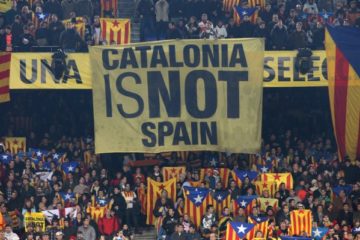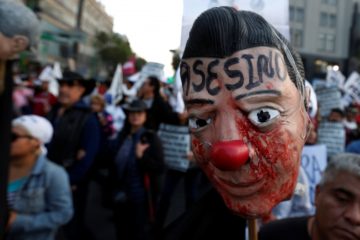So, Romania has had its presidential elections, and everything about it was delightfully innovative.
Take one tiny (in terms of importance not surface area) poor country, ridden with corruption and a passive, emigrating population, pessimistic about its existence in general. Then fast forward a few years ahead to the 2nd of November 2014, and you will find an increasingly different situation: the highest political participation since ’96, as people consider it their moral duty to act on their democratic right, 7 hour long cues in front of Romanian embassies throughout the world as nationalism-stricken youth demand to vote, protests back home, and Facebook boomimg with politicized statuses and fights amongst friends.
So what did this mean for us? Actually, a great deal; both in terms of political prospects and the general attitude amongst Romanians. As a result of the elections, Klaus Iohannis is now President of Romania. Klaus is a svab-german or “Transylvanian Saxon” if you want to call him that (ah, Wikipedia), which is an ethnic minority group in Romania. This makes him the first ever president of Romania to be part of an ethnic minority. Before this he was mayor of Sibiu, deemed one of the most beautiful cities in the country He did a terrific job as mayor, but the real question is being asked now: can he effectively rule a country? Many doubt his political ability, as he does not have enough experience (an absurd lack of experience, really). However, this was also his biggest strength, as most of us preferred an inexperienced yet well-mannered guy as opposed to his opponent, Victor Ponta. Ponta, our current prime minister, whom many think represents the type of leadership our country needs to get rid of as he would perpetuate the rule of local barons (conspicuous corruption is another defining characteristic of this great guy). It must be specified that we didn’t vote for Iohannis per se, as we don’t like any of our politicians; but what most Romanians voted for was for somebody who stood against the other guy.
As public opinion is saturated with disgust regarding corruption, we jumped on the occasion to elect an “innocent”, relatively intelligent, not conspicuously corrupt man for president. We have great expectations from him, so let’s hope he will live up to them.
Overall however, the results of the presidential elections are less important than the election phenomena itself. The result, in plain words is: we chose the less corrupt guy who didn’t involve himself in the mainstream dirty Romanian politics yet, which still gives him a chance to lead us in a favourable, modern direction, although, nothing is certain.
However, what I would like to emphasise more than anything else is the effect these elections had on Romanians’ sense of identity, pride and nationalism. How did this change Romanians’ perceptions of Romania on the ground? When I talk about the elections I mean both the results (Iohannis as president), but also the entire process of campaigning one’s opinions on social media, cueing up to vote, and protesting in the streets.
Before I start, I want to make a small parenthesis on nationalism. Nationalism, like all “isms”, has a negative connotation, implying radical, isolationist, and xenophobic movements. This might apply to well established countries, such as the UK (see the rise of UKIP, BNP, etc.), but it is not the same with countries like Romania, which have been depleted of a sense of nationalism altogether, and in this case, its revival may have positive outcomes.
As I said, just a few years ago Romanians were whining, and thought their country was too corrupt and dysfunctional to live in, all whilst lamenting its lost beauty; this attitude caused the wave of immigration we are famous for. However, as some of the middle aged people emigrated, in time they realised that home is nice as well and decided to come back. Most importantly however, the youth, e.g. my generation in their 20s that were born after (or right at the limit) of communism, and don’t have the traumas the past generations do, decide to go abroad, study, become skilled, and start shaping new ideals and expectations for their country. Slowly but steadily, changing things for the better becomes a realistic possibility. Not only is it a distant possibility, but they themselves have the know-how to implement it. So until we come of age and hold some instrumental power, what we can do is rant about our beliefs and exercise the two institutional powers we do have: the democratic vote, and the peaceful protest. One of the key moments when the general attitude towards political engagement really started changing was two years ago with the “Rosia Montana” protests. Thousands of people, young and old, gathered in peaceful demonstrations throughout the country, against an exploitative mining project. This is how we began to learn that we care about things, and that we can actually create movements.
However, unlike the Rosia Montana issue that is inconclusive, this time we were actually efficient and created effects on the ground. In the first round of elections, Victor Ponta secured a comfortable lead and everybody thought he would win. In the span of just two weeks however, in an unlikely turn of events, the tables turned radically. The Romanians abroad – the diaspora – could not vote because the bureaucratic process was so inefficient that it created waiting queues up to 7 hours long. But people stayed; some students right here at LSE waited in line for 5 hours in order to vote. This created some sort of solidarity in all the big capitals of the world, inspired the Romanians back home to vote as well, and caused protests against the prime minister. Overall, there was a huge turnout inside the country as well as outside of it.
And, because of this, in the span of 2 weeks Ponta turned from winner to loser, one of the main reasons being that the Romanians abroad got too angry at the system which consequently made the Romanians in Romania who were already angry, even angrier, and they all voted for Iohannis. Thus, the world is a happy place – yay!
So, this is only a short summary of what is otherwise a complex issue. However, the most important lesson I draw out of this is: it is refreshing and comforting to re-establish a Romanian identity, one that is associated with a fun, full of potential, and pretty place, rather than all that negativity.
The post-communist generation educated abroad that turned around the results of the election and put the “good guy” (really now, none of them is good) in power signals a new shift in identity, the revival of constructive nationalism, and the possibility of development. Let’s just hope ideas will continue turning into actions.



